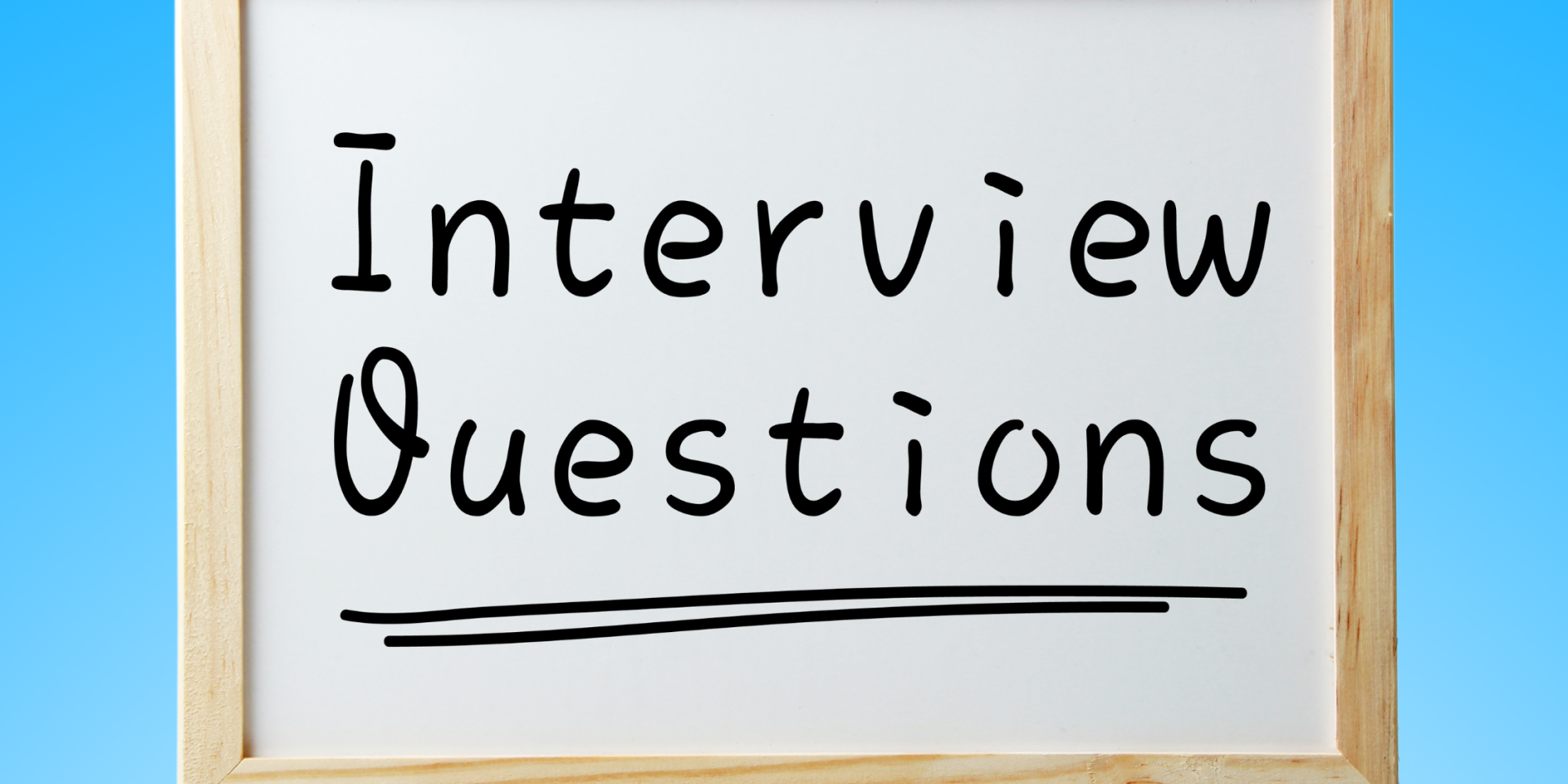COMMON INTERVIEW QUESTIONS AND HOW TO ANSWER THEM.
After graduating from the university and completing NYSC, the first thing on every graduate’s mind is to get a job. The labour market is highly competitive and saturated because some graduates from past years are either unemployed or underemployed.
It is highly necessary that when you are invited for an interview, you are well prepared to face any question you could be asked.
Interview questions vary depending on the kind of role you are been interviewed for but here are common questions that may likely come up during interview sessions for most roles.
Let us meet you/ Tell me about yourself
This question can be asked in different formats but the end point is to introduce yourself. When you are asked this question, the interviewer is looking for an answer that is relevant to your professional life. This is an icebreaker to knowing you, your projection of yourself and your suitability for the role.
You do not need to share personal details, such as family background. Focus on delivering a brief advertisement of yourself highlighting your experience and achievements, education, skills and as much as possible, the rationale for your career decisions.
Tips to answer the question:
- Connect personal strengths to supporting examples
- Keep your response to two minutes or less
- Say what sets you apart from other candidates
- Mention past experiences and proven successes
- Connect your skills to the job description
- Align your current job responsibilities to the role
Why should we hire you?
This is your chance to demonstrate why you want the job and why you would be a perfect fit for the company.
“Focus on what sets you apart from the crowd and where your greatest strength lies. Highlight what you can bring to the table in terms of your value, experience, personality and enthusiasm.”
Check the job description for the specific qualities they need for the job and demonstrate with examples why you are particularly suited for the role.
Example:
The job description states that you are looking for someone with patience and superior communication skills. While volunteering and holding an office for the Special Olympics, I learnt how to be patient with the athletes and participants at our state’s Special Olympics. Coordinating the event helped me develop better communication and planning skills which are important when performing the responsibilities of this role.
What are your strengths/weaknesses?
In most job interviews, you would be asked to describe your strengths and weaknesses. In preparation for an interview, you should consider how best to answer this question so that the information is useful to employers while not damaging your chances of being hired.
Strengths
Look for three key qualities in the job description the employer is looking for and provide examples of times you have used these strengths at work and avoid bragging.
Examples of Strengths:
- Communication skills.
- People skills.
- Writing skills.
- Analytical skills.
- Honesty.
- Leadership skills.
- Patience.
- Writing skills.
- Empathy.
- Initiative.
- Self-motivation.
- Computer literacy.
Weaknesses
Avoid coming across as negative when talking about your weaknesses. Think of areas where you have taken steps to improve your weakness. “Discuss skills that you have improved during your previous experiences, you will show the interviewer that you are able to make improvements when necessary”. Also, you can mention weaknesses that can be strengths.
Examples of Weaknesses:
- Self-criticism.
- Shyness.
- Lack of knowledge of particular software.
- Public speaking.
- Taking criticism.
- Lack of experience.
- Inability to delegate
- Lack of confidence.
What do you know about our company?
The best way to answer, “What do you know about our company?” is to name specific facts you found while researching the company that demonstrate you understand their business and got to know their organization before applying. You can name facts you discovered on the company website, social media channels, news articles and more.
Before going for an interview, you should find out about the company.
Who is the current MD/CEO, the key officers, the location of the head office, what the company is into and the kind of services they render. Also, know their mission, vision and their key values.
What’s your ideal kind of organization?
Everyone has a dream company they must have imagined in their minds, so do you. When a random person asks ‘Tell me about your ideal company’, you happily name your aspirational workplace, don’t you?
But when the same question is asked by a recruiter at an interview, please play safe. Do not name the company. Instead, talk about its work culture, location, principles, products, services and anything else that you feel sets it apart from the rest. Also, try to give a subtle hint that the company you are interviewing for is in reality your dream company. If you do that, your interviewer will be impressed.
The interviewer wants to know whether your value aligns with that of the organization and if you can fit into their peculiar culture and system. Also, you should talk about what you expect from the organization in terms of career growth.
Why are you leaving your current job?
This can be quite tricky, and you should never speak badly about your previous or current employers or organizations. If you do, you will be the one looking bad.
Stay positive regardless of the circumstances.
Speak on positive reasons such as an opportunity, a chance to do something special or other forward-looking reasons.
Some of the most common, and easy-to-explain, reasons for leaving a job include:
- Desire to learn.
- Desire to take on more responsibility.
- Desire to take on less responsibility.
- Desire to relocate.
- Desire for a career change.
- Desire to gain a new skill or grow a current skill.
- Company reorganization has led to a change in job content.
- Desire for a shorter commute to work.
- Desire to improve work/life balance.
When answering this question, it’s easy to think about all of the things you dislike about your current job but don’t go there.
Have you ever worked with a team? Tell me about one of such situation.
This is a question to gauge your practical exposure and ability to collaborate, communicate and work well with others. Along with providing a concrete yes or no response, you should also explain your answer using applicable examples and achievements where possible. Describe any project where you worked with a team, the problem you were trying to solve, your role and input on the project as well as the end result.
Example answer for a construction worker
“In my previous position as a construction labourer for TWCC Construction Company, I worked on a team for several residential remodelling projects. During one project, we had plans to demolish an interior kitchen wall to merge the living room and the kitchen into one room. There were structural challenges during the process, as the kitchen wall provided support for the rest of the house. As a team, we installed several additional support beams on the ceiling before demolishing the kitchen wall.
During the installation of the support beams, I worked with another team member using the ladders to secure the beams while other team members provided assistance on the ground, holding our ladders and telling us what they saw throughout the process. As a result of this process, we successfully installed the beams and were able to finish the remodelling project while maintaining the structural integrity of the home.
What has been your greatest achievement so far?
This is a question to sell your accomplishments in your career journey. Talk about projects or tasks you delivered personally or with your colleagues, which increase your productivity or capacity and brought profit or improvement to your employer. This has nothing to do with you getting married, having children or assets you purchased.
Example:
“My greatest achievement at my last company was when I designed and implemented a loyalty card scheme for customers.
During the first 6 months of the launch, we saw an increase in revenue of 19%, which was the biggest increase the company had ever seen during a 6-month period.
Through this initiative, I gained a promotion and won the ‘Employee of the Year award.
What transferable skills do you have from your previous role?
This question comes up when you haven’t occupied such a position before or you are applying to a new industry. So, you need to talk about the skills you have with your previous or current job that will be required for the particular role or industry you are applying to.
Research what is obtainable for your function in the new role as well as industry and sell how your value and skills can be beneficial to the organization.
- Business Strategy
- Leadership and Team Management
- Problem-Solving
- Teamwork Ability
- Data Analysis
- Communication Skills
- Time Management
- Work Ethic
- Commercial Awareness
- Listening and Providing Feedback
What is your salary expectation?
Before going for the interview, ensure you find out the ideal salary for your role with your years of experience, you can use websites resources or ask people. Also, rather than answering the question directly, you could respond with:
I would prefer to know more about the job and your expectations of the employee first to give you a realistic number.
You could also give a salary range as a response or flip back the question to know what the company is looking to pay before answering.
Thank you for reading. We hope you found this helpful





